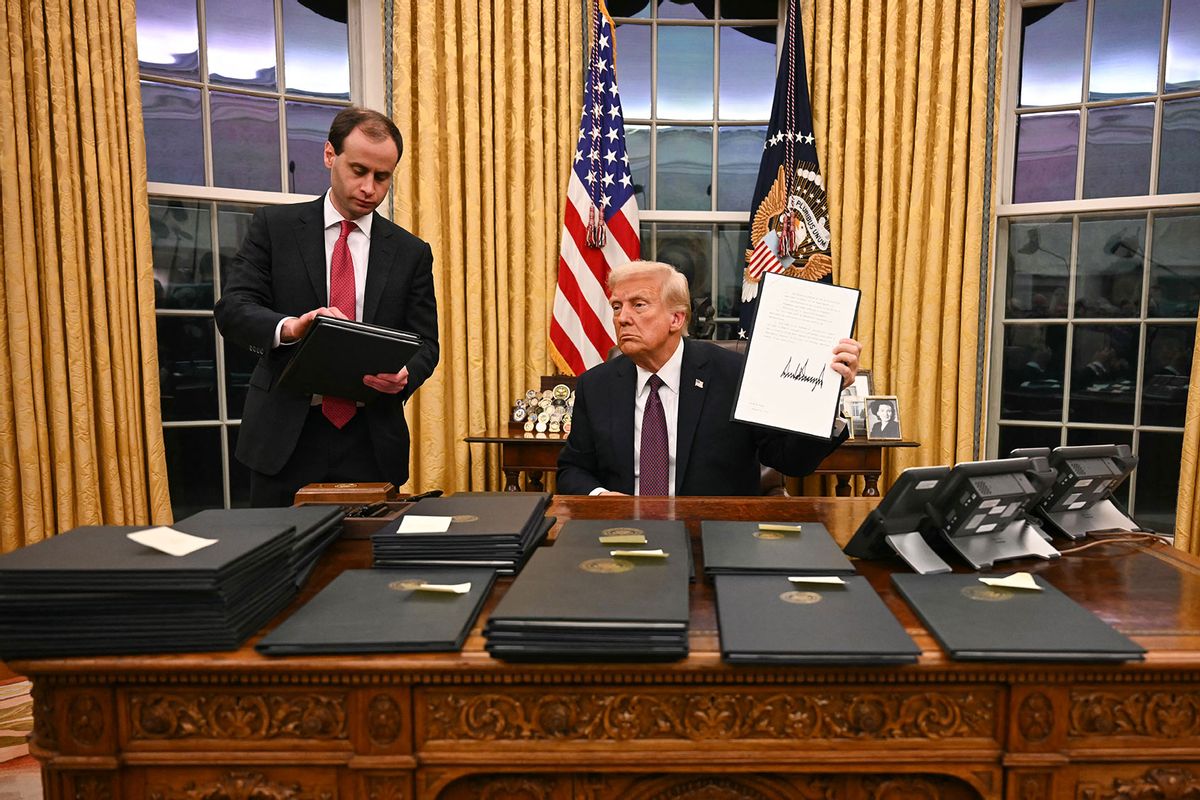President Donald Trump said Monday he planned to put a 25% tariff on imports from Canada and Mexico by Feb. 1, but held off on previous pledges of across-the-board tariffs and even higher ones on China.
“We’re thinking in terms of 25% on Mexico and Canada, because they’re allowing vast numbers of people” into the U.S., Trump said Monday night, responding to questions from reporters.
Trump said he "may" impose universal tariffs. He had previously said he planned 10% to 20% on imports from all nations. "Essentially all countries take advantage of the U.S.," he said Monday.
He did not mention China, which he has said would face tariffs of up to 60%.
Trump, who enacted tariffs in his first term, has said the steeper ones will encourage more manufacturing in the U.S. Economists have said they could cause consumer prices and inflation to spike.
The three nations are the largest U.S. trading partners, and tariffs would likely result in higher prices on larger items, such as vehicles, and smaller ones such as avocados, children's toys, chocolate and beer, CNBC reported.
Mexico and Canada, large importers of autos and energy, have said they would retaliate against American goods, Bloomberg reported. Nearly $2 trillion in goods and services were traded among Mexico, Canada and the U.S. in 2022, according to the U.S. Mexico-Canada Agreement negotiated during the first Trump administration.
The proposed tariffs would hit the U.S. auto industry and Detroit carmakers particularly hard, Bernstein analysts have said. Bloomberg reported the additional levies would affect $97 billion worth of auto parts and 4 million finished vehicles that come into the U.S. from Canada and Mexico, and could increase average new-car prices by about $3,000, according to Wolfe Research.
“None of this should be surprising. The one thing we’ve learned is that President Trump at moments can be unpredictable,” Dominic LeBlanc, Canada’s finance minister, told reporters after Trump’s comments, per Bloomberg. He said the Canadian government would continue talking with Trump about border security and fentanyl, which Trump has tried to use as a bargaining tool.
Mexico has sought to placate Trump by reducing imports from China and carrying out a record fentanyl seizure, Bloomberg reported.
Border crossings in Mexico have dropped significantly since President Joe Biden signed an executive order in July effectively blocking undocumented migrants from receiving asylum, The New York Times reported, but the crossings remain higher than during much of Trump’s first term.



Shares